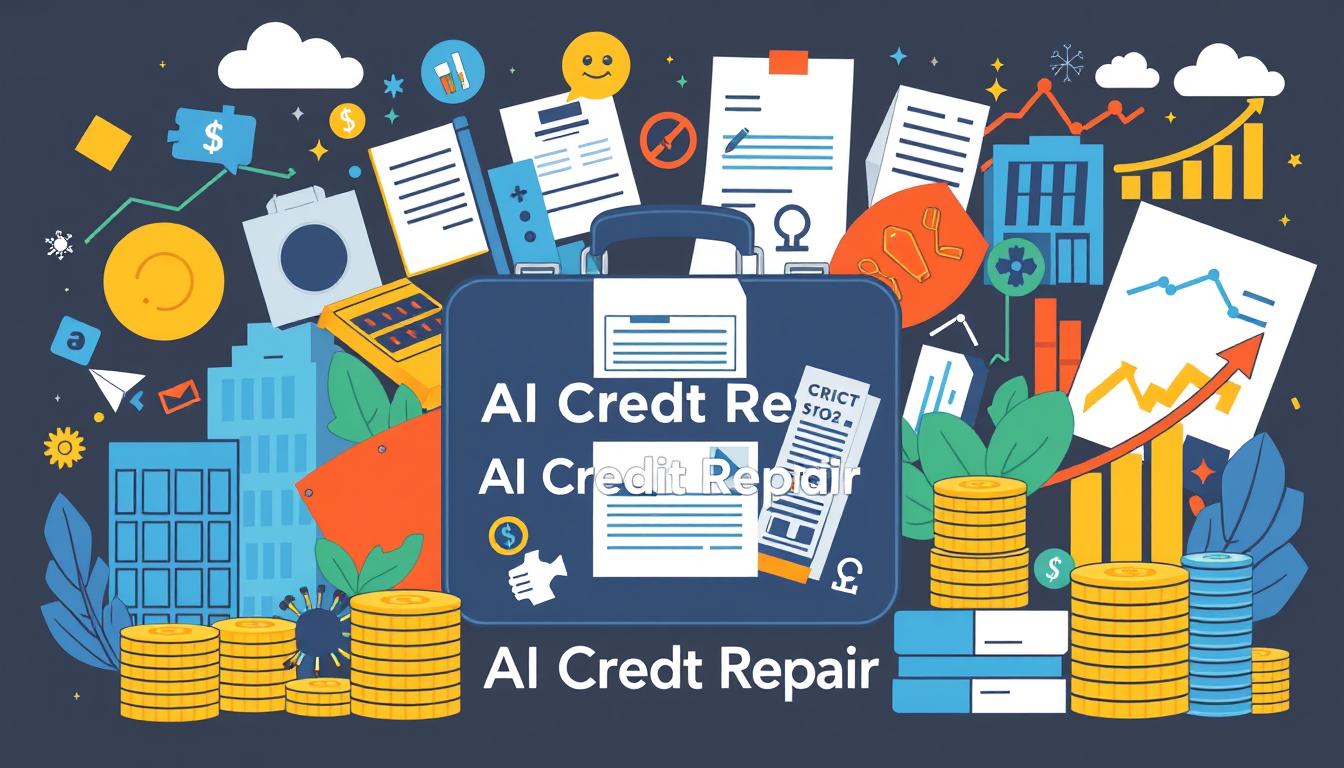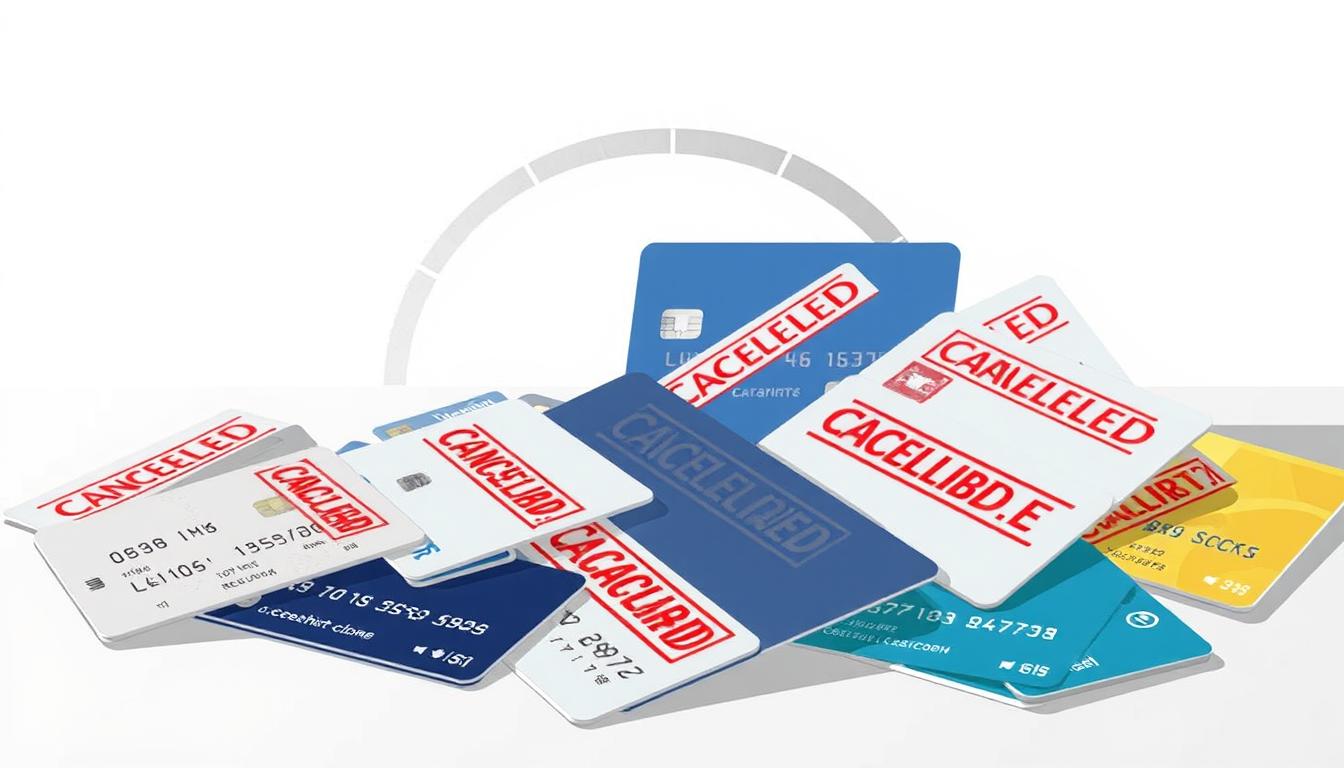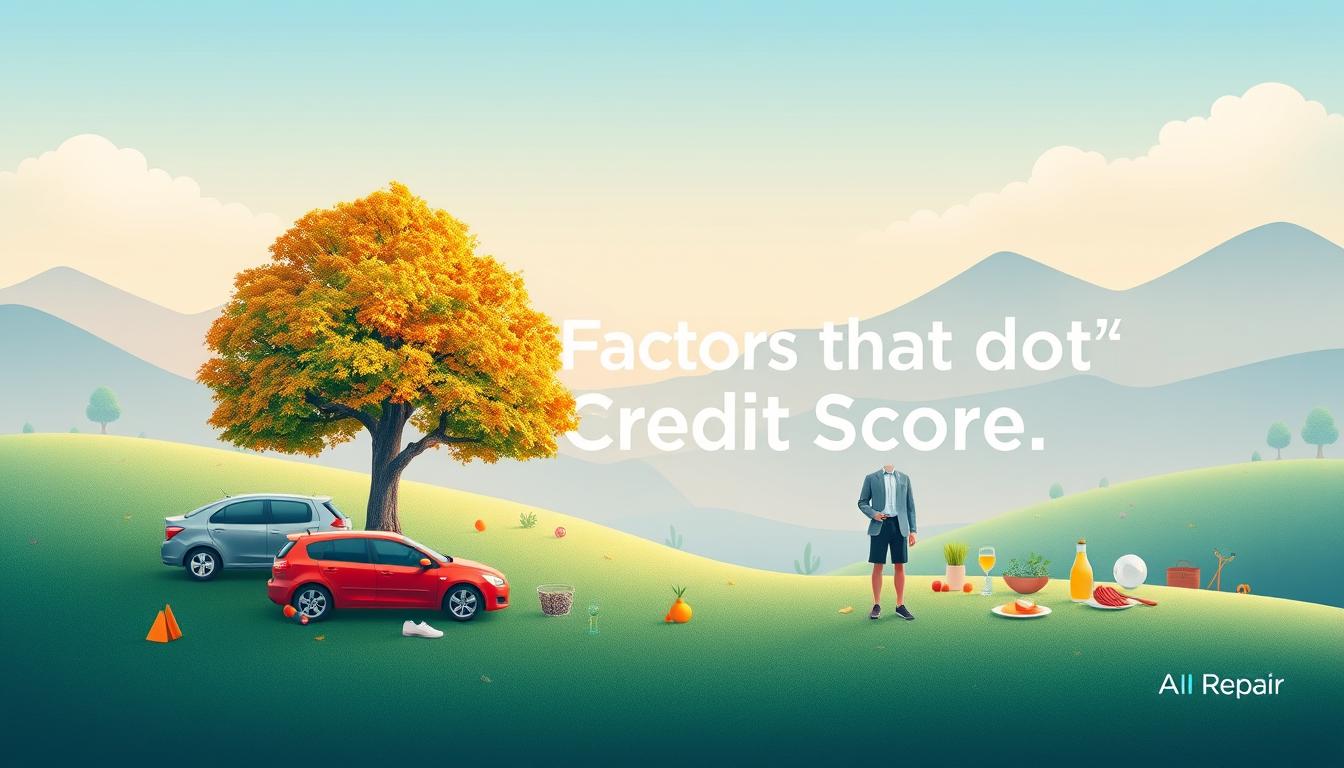Your credit score is crucial for your financial health. It’s a key factor for lenders, landlords, and employers. Many myths exist about what impacts this number. Knowing what doesn’t affect your score is just as vital.
Understanding these myths helps you focus on what truly matters. You can then maintain a healthy credit profile more effectively. This knowledge is key to reaching your financial goals.
Key Takeaways
- Your employment history and income level do not directly affect your credit score.
- Checking your own credit report will not impact your score, and is actually recommended for monitoring.
- Closing credit cards or paying off loans may not always improve your credit score.
- Debit card usage and bank account activity are not factored into your credit score calculations.
- Utility bill payments and your marital status are also not considered when determining your credit score.
By debunking these myths, you can better manage your credit. Regular monitoring of your credit report is recommended. Remember, your actions can significantly impact your financial future.
Understanding Credit Score Factors
Your credit score is vital for lenders to assess your creditworthiness. It’s not just about payment history. A complex algorithm considers multiple factors to calculate your score.
Knowing what drives your credit score helps you make better financial decisions. It can also improve your overall financial standing.
Distinguishing Myths from Reality
Many misconceptions exist about what affects your credit score. Let’s examine some common credit score myths and compare them to real credit score factors.
- Myth: Your income and employment history directly affect your credit score.
- Reality: While lenders may consider your income and employment when making credit decisions, these factors do not directly impact your credit score.
- Myth: Checking your own credit report can lower your credit score.
- Reality: Checking your own credit report is considered a “soft inquiry” and does not negatively impact your credit score factors.
- Myth: Closing unused credit cards will improve your credit score.
- Reality: Closing credit cards can actually decrease your available credit, potentially increasing your credit utilization ratio and negatively impacting your credit score.
Understanding real credit score factors helps you make smart choices. You can maintain and boost your credit score with this knowledge.
| Credit Score Factor | Impact on Score |
|---|---|
| Payment History | 35% of your credit score |
| Credit Utilization | 30% of your credit score |
| Length of Credit History | 15% of your credit score |
| Types of Credit Used | 10% of your credit score |
| New Credit Applications | 10% of your credit score |
Stay informed about true credit score factors and avoid common credit score myths. This knowledge empowers you to take action and improve your credit score.
By maintaining a good credit score, you open doors to better financial opportunities. Make smart choices today for a brighter financial future.
Your Employment History and Income
Your job and income don’t directly affect your credit score. Credit scores depend on borrowing and repayment patterns. Timely payments and healthy credit utilization are key factors.
Many believe employment history and credit are closely linked. However, your job and earnings do not affect your credit score. Responsible credit management matters most, regardless of your occupation or income.
- Your credit score is based on your credit history, not your employment status.
- Making timely payments and keeping your credit utilization low are the keys to maintaining a good credit score.
- Factors like does job affect credit are not considered in the credit scoring model.
“Your credit score is a reflection of your financial behavior, not your income or employment situation.”
Your job and earnings impact your overall finances. However, they don’t directly influence your credit score. Focus on responsible credit management to build a strong credit profile.

Checking Your Credit Report
Reviewing your credit report often is key to a good credit score. Checking your report doesn’t hurt your score. It helps spot issues that could harm your credit.
Monitoring your credit report can help you find and fix errors. This protects your credit health. It’s a smart way to keep your finances in check.
Monitoring Activity for Errors
Staying alert helps ensure your credit report is accurate. You can catch and fix credit report errors before they cause lasting damage. This keeps your credit in good shape.
Here are some tips for effectively monitoring your credit report:
- Get a free yearly credit report from Experian, Equifax, and TransUnion.
- Look for wrong account info, missed payments, or fraud in your credit report.
- Report any credit report errors to the right credit bureau for fixing.
- Check your credit report often for changes to stay on top of your finances.
Taking charge of your credit report helps keep your financial history accurate. This can lead to a stronger credit score over time.
“Regularly reviewing your credit report is essential for maintaining a healthy credit score and catching any potential errors or inaccuracies.”
Canceled Credit Cards and Loans
Canceling a credit card or paying off a loan isn’t always good for your credit score. It can actually hurt your score by lowering your credit limit. This can increase your credit utilization ratio, which is bad for your credit.
Closed accounts can impact your credit score in unexpected ways. Paying off your only installment loan might lower your score. This happens because lenders like to see a mix of different credit types.
Canceling a credit card can also harm your credit score. It reduces your total available credit and may increase your credit utilization ratio. A high utilization ratio is a major factor that can lower your credit score.
| Factor | Impact on Credit Score |
|---|---|
| Canceled Credit Cards | Negative |
| Closed Loan Accounts | Negative |
| Credit Utilization Ratio | Negative |
To keep a good credit score, keep your credit cards open, even with $0 balances. This helps maintain your credit limit and keeps your utilization ratio low. Try to have a mix of installment loans and credit cards.

“Closing a credit card account can have a negative impact on your credit score, even if you don’t have a balance on the card.”
Debit Card Usage and Bank Accounts
Your debit card transactions and bank account details don’t affect your credit score. Credit scores only reflect credit-related activities. These include credit card usage, loan repayment, and other credit factors.
Your debit card and credit score aren’t connected. Debit card use and account balances don’t influence your credit score. Bank accounts and credit score are separate too. Bank account information isn’t used to determine your credit score.
It’s vital to know the difference between debit and credit cards for credit scores. Credit card use is reported to credit bureaus. Debit card transactions aren’t. Debit cards transfer funds from your bank account instantly.
| Factors Affecting Credit Score | Factors Not Affecting Credit Score |
|---|---|
|
|
Knowing how debit cards, bank accounts, and credit scores differ is key. It helps maintain a healthy credit profile. By focusing on what truly impacts your credit score, you can build strong credit.
What Does Not Affect Your Credit Score?
Knowing what doesn’t impact your credit score is crucial. It helps you avoid unnecessary worries about your creditworthiness. Let’s explore some elements that don’t affect your credit score.
Your personal details don’t influence your credit score. These include race, gender, age, salary, and occupation. Whether you rent or own your home also doesn’t matter.
Utility bill payments generally don’t impact your credit score. This covers electricity, gas, water, and phone bills. Credit bureaus don’t typically receive reports on these expenses.
| Factors Not Affecting Credit Score | Impact on Credit Score |
|---|---|
| Race | No direct impact |
| Gender | No direct impact |
| Age | No direct impact |
| Salary | No direct impact |
| Occupation | No direct impact |
| Rental vs. Homeownership | No direct impact |
| Utility Bill Payments | No direct impact |
Focus on what truly matters for your credit score. Make timely payments and keep your credit utilization low. Regularly check your credit report for errors or discrepancies.

Utility Bill Payments
Your on-time payments for utilities don’t directly affect your credit score. However, there are exceptions where utility bills can indirectly impact your credit. These utilities include electricity, gas, water, and cable/internet services.
Exceptions and Best Practices
Unpaid utility bills sent to collections can hurt your credit score. Pay all bills on time to keep a healthy credit score. Address any collection issues quickly.
Some utility providers may report your payment history to credit bureaus. This could affect your credit score. Check your utility company’s policies to be sure.
To protect your credit, follow these best practices for utility bill payments:
- Pay all utility bills on time to avoid late payments or collections.
- Monitor your credit report regularly to identify any discrepancies or errors related to utility payments.
- Communicate with your utility providers to understand their reporting policies and address any issues promptly.
These steps will help maintain a good credit score. They’ll also prevent problems from your utility bill payments.
Marital Status and Age
Your marital status doesn’t affect your credit score. Single, married, divorced, or widowed – it doesn’t matter. Your credit history and repayment behavior are what count.
Age doesn’t directly impact your credit score either. Young people might have lower scores due to shorter credit histories. Older folks may have higher scores from longer credit histories.
| Marital Status | Impact on Credit Score |
|---|---|
| Single | No impact |
| Married | No impact |
| Divorced | No impact |
| Widowed | No impact |
Marital status and age can have indirect effects. A spouse’s credit history might impact joint accounts. Your age may influence your borrowing habits over time.

Focus on building a strong credit history. Make timely payments and manage your finances responsibly. These habits lead to a healthy credit score, regardless of age or marital status.
Rental History and Payments
Your rental history and on-time rent payments don’t significantly impact your credit score. Regular, timely rent payments are generally not factored into your overall credit score calculation.
Some landlords may report late or missed rent payments to credit bureaus. This could negatively affect your score. However, routine, on-time rent payments typically don’t boost your credit rating.
Your rental history can still influence future housing or loan applications. Landlords and lenders often consider past rental payment behavior. They see it as an indicator of financial responsibility, even if it doesn’t directly affect your credit score.
| Metric | Impact on Credit Score |
|---|---|
| Rental History | Not directly factored, but can influence housing and loan decisions |
| On-time Rent Payments | Generally not included in credit score calculations |
| Late or Missed Rent Payments | May be reported to credit bureaus, potentially negatively impacting score |
Your rental history and credit score aren’t directly linked. Yet, maintaining a positive rental payment record is crucial. It paves the way for future housing and financial opportunities.
Conclusion
Understanding what doesn’t affect your credit score is as important as knowing what does. This knowledge helps you focus on elements that truly matter for a healthy credit profile. Your credit score reflects your borrowing and repayment history, not personal details or lifestyle choices.
Employment history, income, and utility bill payments don’t directly impact your credit score. Marital status, age, and rental history also have no direct effect. Regular credit report monitoring and timely payments are key to maintaining a good score.
Stay informed about credit-building strategies to make smart financial decisions. This knowledge empowers you to take control of your credit journey. Focus on these factors to positively impact your financial well-being.

